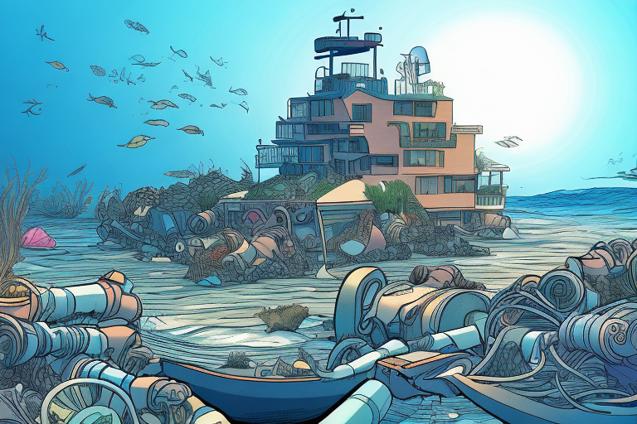
Discover the impact of marine debris on coastal communities and how you can contribute to the solution as a sailor and ocean conservationist.
The Impact of Marine Debris on Coastal Communities
As sailors and adventurers, we have a unique opportunity to witness firsthand the beauty and fragility of our oceans. We also have a responsibility to protect and preserve these precious ecosystems for future generations. One of the most pressing issues facing our oceans today is the growing problem of marine debris. In this article, we will explore the impact of marine debris on coastal communities and discuss ways in which we can all contribute to the solution.
What is Marine Debris?
Marine debris is any solid, man-made material that enters the ocean, either intentionally or unintentionally. This can include items such as plastic bottles, fishing nets, and even abandoned boats. The majority of marine debris, however, is comprised of plastic waste, which can take hundreds of years to break down in the ocean.
The Effects of Marine Debris on Coastal Communities
Marine debris poses a significant threat to coastal communities, both environmentally and economically. The following are some of the ways in which marine debris impacts these communities:
Environmental Impact
-
Habitat Destruction: Marine debris can damage or destroy important habitats, such as coral reefs and seagrass beds. This can lead to a decline in biodiversity and the overall health of the ecosystem.
-
Wildlife Entanglement and Ingestion: Marine animals, such as sea turtles, seals, and birds, can become entangled in debris or mistake it for food. This can lead to injury, illness, or even death.
-
Invasive Species: Marine debris can act as a vehicle for invasive species, transporting them to new areas where they can outcompete native species and disrupt local ecosystems.
-
Chemical Contamination: As plastic debris breaks down, it can release harmful chemicals into the water, posing a threat to both marine life and human health.
Economic Impact
-
Tourism: Beaches littered with debris are not only unsightly but can also pose a safety hazard to visitors. This can lead to a decline in tourism, which is a vital source of income for many coastal communities.
-
Fishing Industry: Marine debris can damage fishing gear and boats, leading to costly repairs and lost income. Additionally, the decline in fish populations due to habitat destruction and ingestion of debris can negatively impact the fishing industry.
-
Cleanup Costs: Coastal communities often bear the financial burden of cleaning up marine debris from their beaches and waterways. This can divert resources away from other important community projects and services.
Volunteering and Conservation Efforts
As sailors and members of the global community, we have a responsibility to help address the issue of marine debris. Here are some ways in which we can contribute to the solution:
Participate in Beach Cleanups
Joining or organizing a beach cleanup is a simple and effective way to make a difference in the fight against marine debris. Many organizations, such as the Ocean Conservancy and Surfrider Foundation, host regular cleanups and provide resources for volunteers.
Reduce, Reuse, Recycle
Reducing our consumption of single-use plastics and properly disposing of waste can help prevent marine debris from entering the ocean in the first place. Consider using reusable water bottles, grocery bags, and food containers, and recycle whenever possible.
Support Legislation and Policies
Advocate for and support policies and legislation aimed at reducing plastic pollution and protecting our oceans. This can include bans on single-use plastics, improved waste management systems, and funding for research and cleanup efforts.
Educate Others
Share your knowledge and passion for ocean conservation with others. By raising awareness about the issue of marine debris and its impact on coastal communities, we can inspire others to take action and contribute to the solution.
Conclusion
The issue of marine debris is a complex and multifaceted problem that requires the collective effort of individuals, communities, and governments around the world. As sailors, we have a unique perspective on the beauty and fragility of our oceans, and a responsibility to protect them for future generations. By participating in conservation efforts, reducing our plastic consumption, and advocating for change, we can help ensure that our coastal communities and the marine ecosystems they depend on remain healthy and thriving for years to come.